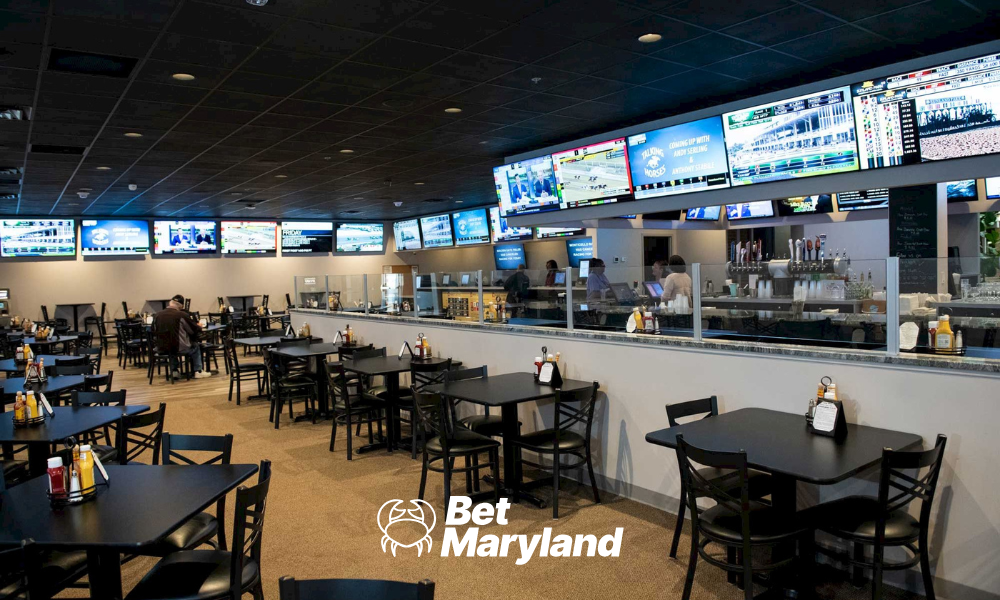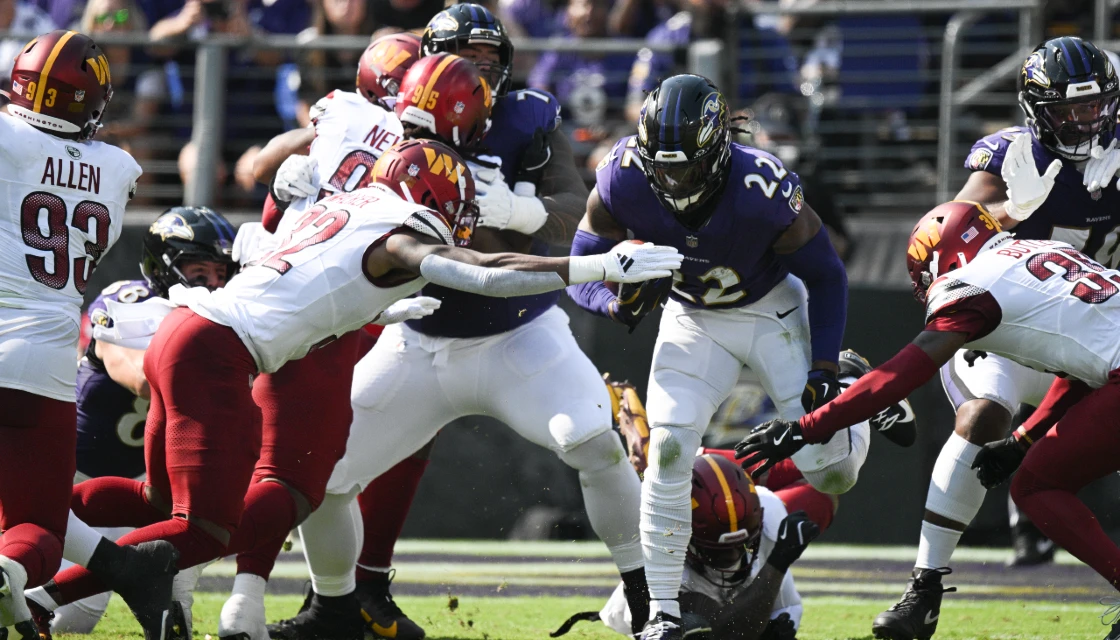Maryland Gov. Larry Hogan’s strong criticism this week of what he characterized as the Sports Wagering Application Review Commission’s lethargy may not have gotten the dramatic results he said he was looking for. But the commission did set some initial deadlines for itself at its meeting Thursday that are designed to move ahead the business of getting online Maryland sports gambling launched.
Notably, the SWARC scheduled a special meeting on June 29 to “take action” regarding draft regulations and applications.
Hogan and others have grown weary of the lengthy process that issuing mobile sports gambling licenses has become. The SWARC is wrestling with implementing the demands of a state law that emphasizes participation — notably “equity” participation — by minority-owned businesses and women-owned businesses in the state’s sports betting industry.
Hogan sent a letter to the SWARC Tuesday expressing his frustration and that criticism was made public Wednesday in a press release. Thursday at its meeting, the SWARC, which is an independent appointed body created by the sports betting law, responded.
“I understand that many are frustrated that the process related to the issuance of Maryland mobile sports wagering licenses has been time-consuming,” said SWARC chairman Tom Brandt, who happens to be one of Hogan’s own appointees to the seven-member commission that also includes members selected by General Assembly leaders.
“I also want everyone to know that SWARC and its support team have been operating as diligently and as deliberately as we can under the Maryland sports wagering law that we’re tasked to administer."
SWARC Trying to Move Forward
Brandt said that while a “disparity” study is being worked on to examine the issues involved in addressing the state’s wagering law’s emphasis on minority, women and small business participation, he is attempting to move forward regarding applications for the mobile betting app licenses.
“A draft of these preliminary regulations and applications will be delivered to SWARC members early next week (June 20-24),” Brandt said. “I intend to have SWARC take action with respect to these drafts at a special meeting in the next few weeks.” Later, June 29 was set for the special meeting. SWARC’s next regular meeting is July 20.
The Maryland sports wagering law is highly distinct from any other sports wagering law in the U.S., in that it seeks to address diversity in an exceptionally meaningful way.
Brandt said the SWARC was tasked with coming up with a process that is “legally sound and to the maximum extent permissible by law allows SWARC to seek to achieve racial, ethnic and gender diversity when awarding the sports wagering licenses.”
No Launch Timeline Revealed
In his public criticism, Hogan had asked for a “timeline” regarding online sports wagering with a target date for starting mobile betting as the start of the NFL season on Sept. 8.
Other than the June 29 meeting, Brandt did not offer any other specific points in time.
“As other tasks are completed, SWARC will be in a better position to provide a timeline regarding license issuance,” Brandt said. “Based on what we know today, I expect the SWARC applications for mobile sports wagering and additional Class B (retail) licenses to be published this summer and for SWARC to begin accepting applications shortly thereafter.”
Lottery & Gaming Application Platform to Open
Meanwhile, the Maryland Lottery and Gaming Control Commission, which has its own essential role (much of it investigatory) in getting gaming applicants licensed, announced Thursday that it will open its eLicensing platform June 17 to businesses and individuals who want to pursue a sports betting mobile license or a Class B sports wagering facility (retail sportsbook) license.
Lottery & Gaming has consistently alerted potential applicants that the background checks it makes are highly intrusive, in-depth and lengthy.
“The MLGCC’s investigations and the SWARC’s application process may not have the same starting point, but it’s always been the plan for them to unfold on parallel tracks,” said Lottery & Gaming Director John Martin in a statement announcing the eLicensing platform. “Some investigations could take several months, so now is a great opportunity for all potential applicants to get the ball rolling.”
Tackling the application process online can help applicants gauge whether they want to spend the money for an application fee before setting in motion the investigation phase.
In a news release Thursday, Lottery and Gaming noted: “The eLicensing portal and Maryland Lottery and Gaming’s investigations are separate from the SWARC’s competitive application process. Maryland Lottery and Gaming determines if a business or individual meets the state’s qualification standards for a license. SWARC will rank the applications it receives for licenses and determine if awarding a license is in the public interest, as is required by law.”
SWARC can award up to 30 Class B facility licenses and up to 60 mobile licenses, although hardly anyone expects there will be 60 online applicants.
Retail License Update
There are five retail sportsbooks in the state, all at casinos, and they produced a May handle of about $23 million. Four more smaller businesses (three OTBs and a bingo facility) have been issued licenses by the SWARC but haven’t started taking bets yet as they work on internal controls and construction.
The state sports wagering law designated 17 entities for facility (retail) licenses. Of the eight potential outstanding businesses — and without identifying them — Lottery & Gaming said Thursday that two were undergoing background checks and three were working on applications. Three have not been active. One retail applicant is expected to be presented for approval at the next Lottery & Gaming Commission meeting on June 23.
Regarding the writing of the online regulations, Lottery & Gaming has been working on those, Deputy Director Jim Nielsen said, and those regulations were 95% completed. However, they still have to work their way through a process of reviews and approvals.







